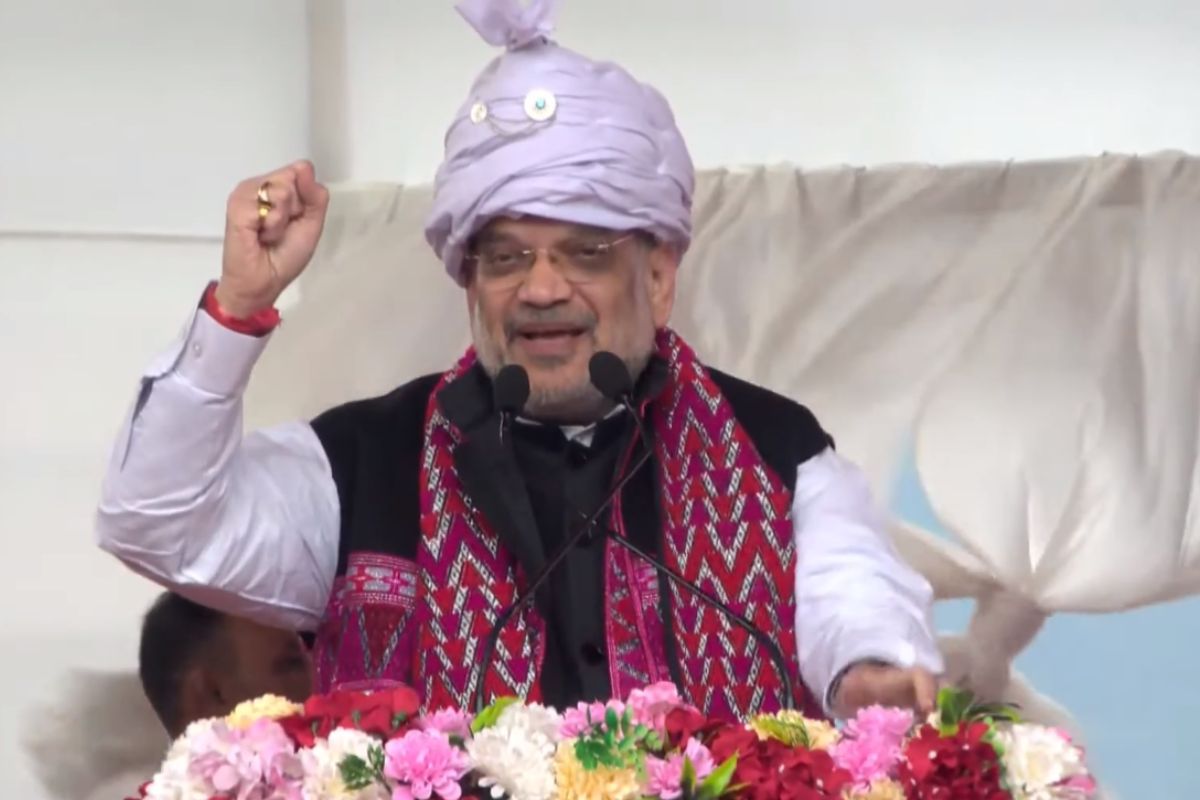Yogi credits Modi’s leadership for BJP’s 7-2 victory in UP by-polls; Akhilesh claims misuse of power
CM Yogi once again raised the slogan 'Batoge to Katoge' and asked the people to stay united.

Union Home Minister, Amit Shah (Photo: Twitter/@AmitShah)
As the upcoming state election in Rajasthan approaches, the Bharatiya Janata Party (BJP) has once again drawn up a calculated strategy by not disclosing its Chief Ministerial candidate’s name. This intriguing approach, inspired by lessons from the recent Karnataka loss, showcases the party’s adaptability and unity in the face of political challenges.
Termed the “undisclosed CM candidate” strategy, previously utilised in Uttar Pradesh, Haryana and Maharashtra, this enigmatic maneuver not only sparks curiosity but also hints at the party’s inclination to bolster its chances of success through flexible methods. It also reflects a lack of confidence in state leadership, while offering a peek into the inner workings of the political machinery.
The BJP’s electoral setback in Karnataka stemmed from the struggle to balance the influence of former Chief Minister B.S. Yediyurappa while fortifying his successor, Basavaraj S. Bommai. Drawing insights from this major loss, the BJP’s core strategy centres on collec- tive leadership, with Prime Minister Narendra Modi at the helm. Rather than spotlighting a single leader, like Vasundhara Raje, who wields significant power and a devoted voter base, the party aims to preserve unity and minimise internal conflicts that might arise from competing factions around leaders such as Gajendra Singh Shekhawat, Satish Poonia, and Vasundhara Raje herself.
In the realm of politics, where landscapes are as unpredictable as they are dynamic, the BJP’s decision to withhold the announcement of a CM candidate showcases its agility, akin to a political trump card. This strategy allows the party to swiftly adapt to evolving situations and align its choice with the prevailing sentiments, thereby augmenting its prospects of securing victory.
Advertisement
Recognizing the potential impact of anti-incumbency sentiment on elections, the BJP strategically shields itself. By avoiding the pre-election unveiling of a CM candidate, the party aims to nullify any adverse repercussions that a well known figure like Vasundhara Raje might face. Efforts to transition leadership away from Raje within the Rajasthan BJP indicate a conscious move, though not without its challenges. The party is keen to avoid a situation similar to the onefaced in Karnataka.
Amid the theatrics of politics, the BJP’s approach underscores its com- mitment to issue oriented campaigns. By concentrating on governance, per- formance, and local concerns, the party positions itself as an agent of progress and change, diverting focus from mere personality clashes.
The covert nature of this strategy perplexes political adversaries. As the BJP refrains from revealing its hand, opponents grapple with uncertainty. This ambiguity disrupts their ability to formulate targeted strategies against specific individuals, potentially granting the BJP a strategic upper hand. The Rajasthan Congress unit has been quick to capitalize on this ambiguity, pointing out the absence of a clear Chief Ministerial candidate.
While not a novel approach, the party’s reliance on this strategy has a proven track record. In the past, BJP leaders, notably Prime Minister Modi, have emerged as key assets in various state elections. Yet, when clear fron- trunners are lacking, the party’s penchant for keeping its intentions guarded takes precedence.
As the state elections draw nearer and general elections are due next year, all eyes remain fixed on the BJP’s calculated move. Political pundits and common people alike speculate about the unidentified figures who might take charge of steering the state’s future, or whether the party will once again place its trust in Vasundhara Raje.
Only time will unveil whether this strategy secures victory or places the party at a strategic crossroads, adding another layer to the intriguing world of political maneuvering. It will be interesting to read the commentary, where the move could either be com- plimented as a masterstroke or attributed to the failure of the PM to ensure a win under his own name.
(The writer is a communications consultant, who has worked with political leaders, government institutions, and corporate clients)
Advertisement